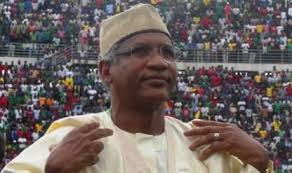By Mark Baber
June 21 – On Wednesday, Mohammed Iya, was re-elected as president of the Cameroon Football Federation by a landslide, on the same day he was transferred to the notorious Kondengui central prison in Yaounde, after appearing before a Special Criminal Court on charges of misappropriation of public funds.
Iya’s re-election was confirmed by the federation late Wednesday, with a reported 97 out of 98 delegates voting for him, despite Cameroon’s failure to qualify for the last two African Cup of Nations and the fact Iya had been arrested on June 10, on his return from watching Cameroon play Togo, over allegations that he mismanaged funds whilst managing the state Cotton Development Corporation, resulting in a loss of $19 million between 2005 and 2010.
The election was preceded by crisis meetings of delegates, with the federation head office where they met cordoned off by security forces and an observer from FIFA reportedly at one point unable to get into the building.
Iya’s opponents Marlene Emvoutou and Fecafoot first vice-president John Begheni Ndeh (a former transport minister) boycotted the vote. Ndeh, for whom the result of the vote is a major setback, said: “There’s not supposed to be any election. All what they’ve done is completely of no consequence whatsoever. The texts clearly indicate that in case of vacancy at the helm, it’s the first vice-president who runs the structure. I did not convene the elective general assembly. So by law, it is illegal.”
Mohammed Iya authorised his first vice-president Alim Konate to represent him during the elections, but the judge of the Special Court set up to investigate the Fecafoot boss has six months to complete his preliminary investigation.
It is difficult to see how the newly re-elected president can run the federation from Kondengui prison, which has been slammed by human rights groups including Amnesty International which has reported that conditions are “harsh, with inmates suffering overcrowding, poor sanitation and inadequate food. Prison guards are poorly trained, ill-equipped and their numbers inadequate for a big prison population.”
Contact the writer of this story at moc.l1751501336labto1751501336ofdlr1751501336owedi1751501336sni@r1751501336ebab.1751501336kram1751501336

